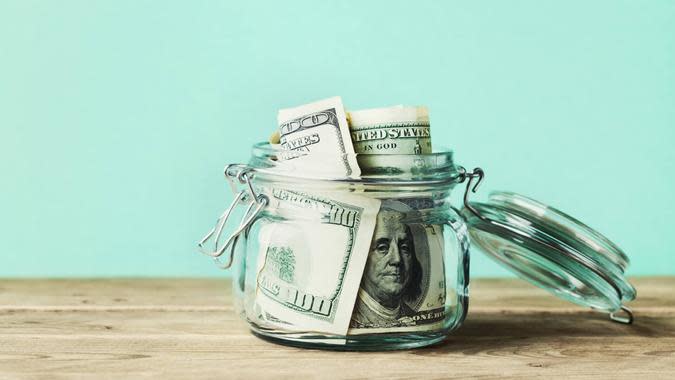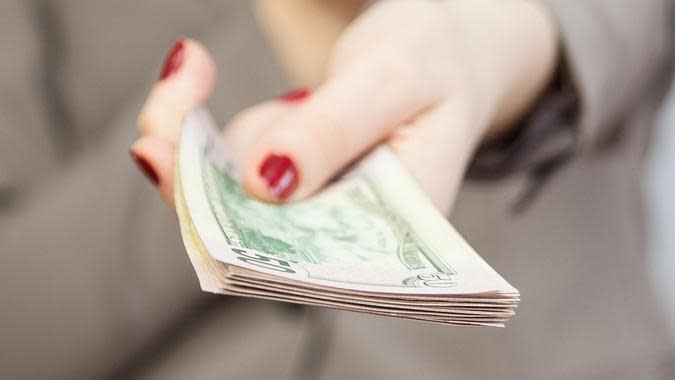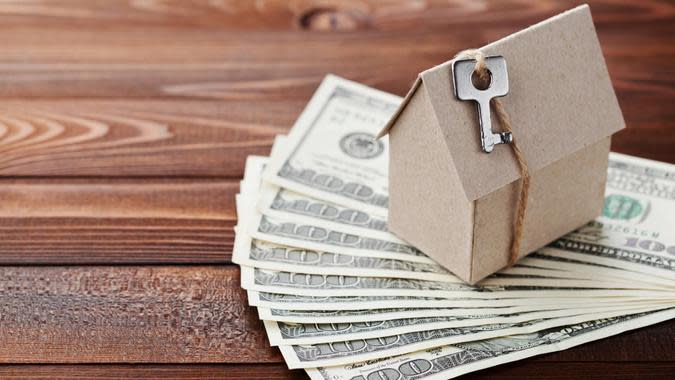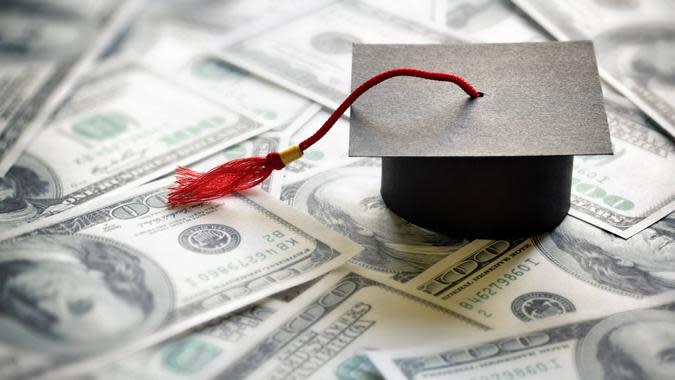12 Mistakes People Make While Paying Off Debt That Only Cost Them More

Ours is a nation steeped in debt. The average American has $90,460 in money owed, according to a CNBC report. This past spring, American household debt hit a record-smashing $14.6 trillion according to the Federal Reserve.
Read: Outdated Debt Advice You Shouldn’t Follow Anymore
Find Out: 16 Key Signs That You Will Always Be In Debt
There's no single reason why we're all drowning in debt, but there are a few major causes including student debt, low income, unemployment and high costs of living, to name but a few. Additionally, there is the tendency to overuse credit cards, which can be caused by a few factors, including the desire for instant gratification and ultra-convenient payment options.
"It's not like it was with our parents or grandparents where we had to actually sit and wait for transactions to be completed," said Shannon Payton, certified credit counselor, Payton Credit Services. "Although the credit system itself isn't new, there's so many advances in technology that make it easy to spend it's almost encouraged. Some people are in debt because they want that instant gratification and I don't have the will power to wait or say no."
Get Started: 25 Ways To Save Yourself From Your Debt Disaster
But then there's the other type of consumer -- arguably the more common one. They're in debt simply because they're trying to make ends meet in a country with a growing poverty gap.
No matter the root cause of one's debt, it's crucial to pay it down in order to lead a financially healthy life. The problem is, people often make the wrong moves in good faith, landing themselves in an even deeper hole than they started out.
With the help of finance professionals, GOBankingRates found some of the most common mistakes people make when trying to get out of debt.
Last updated: Oct. 14, 2021

Not Addressing the Root Cause of Debt
"If you're trying to pay off debt it is absolutely essential that you address the absolute root cause of the debt and stop it, otherwise you're just digging yourself a bigger hole and causing more trouble," said John Russell, partner and business coach at Russell & Co Accountants Cork. "If you don't seriously acknowledge the root cause of the debt you'll wind up in a worse situation.
"Implement a plan to ensure you're only spending less than you make every pay period whilst also setting a significant sum of money aside for an emergency fund," Russell added.
Check Out: How Much Debt Americans Have at Every Age

Not Having a Plan
"A huge mistake many people make when paying off debt is not having a plan," said Carlos Aguilo, CPA and the host of the YouTube channel Influential Finance. "So many people haphazardly make payments on all of their debts, without taking into account interest rates or account balances. This can quickly discourage anyone who is working on getting out of debt, and make them feel like they are not making any progress -- leading to staying in debt longer.
Aguilo recommends making a plan with exact numbers that you are going to pay off each month and having a strategy.
"Not only will this give you a specific date of when you plan to be out of debt, but also give you motivation and allow you to see progress," Aguilo said.
Read More: 35 Useless Expenses You Need To Slash From Your Budget Now

Switching Plans Midway
"Paying down debt can be a long process, and when people don't see progress fast enough, they get frustrated," said Kari Lorz, a certified financial education instructor and founder of Money for the Mamas. "Soon they hear of an even better plan to pay down debt and switch strategies, and if they don't see results, they change again to the newest method. Switching up your strategy is one of the worst things you can do as you lose focus and momentum. Starting over slows you down."
Lorz recommends looking at paying off debt like losing weight: It's slow and steady, but picking one plan and sticking with it until the end is your best bet.
Helpful: 19 Ways To Tackle Your Budget and Manage Your Debt

Eliminating the Smallest Interest Debt First
"One debt mistake I see people making is not tackling their debt with the highest interest first," said John Li, co-founder and CTO of Fig Loans. "It might be tempting to get rid of the smallest debt balances first, but from a purely financial perspective, it doesn't make as much sense.
"If you have a very tight budget, which many debtors do, you should be minimizing your interest by making minimum payments on all your debts, then tossing your extra money onto the highest interest debt account," Li continued. "By getting rid of this debt first, you'll pay the minimum amount of interest over the long run, which will help free up more cash to put down on your principal debts and get out of the hole faster."
Read: 10 Ways To Bounce Back From a Heavy Spending Month on Your Credit Card

Not Changing Overall Financial Behavior
"The most prominent mistake people often make when paying off debt is not changing their overall financial behavior," said Scott Nelson, founder of MoneyNerd. "Making progress paying off debt is only a good thing if you prevent yourself from falling into that situation again. Therefore, when people continue to pay for things they cannot afford, [don]'t have a clear and strict budget [or] a system in place for sensible money management, then their troubles with debts are only going to continue."
Find Out: 50 Ways You’re Throwing Money Away

Dipping Into Your Retirement Accounts
One of the biggest mistakes that Donny Gamble, CEO of Retirement Investments, sees among clients trying to pay down debt is dipping into their retirement accounts.
"Maybe you're in debt, but your retirement account balances are increasing," Gamble said. "In this scenario, you might be tempted to use money from your 401(k) or IRA to pay off your creditors and finally be debt-free. Regrettably, this is usually a bad idea. First off, if you're under 59-and-a-half, you'll be punished with a 10% penalty if you make an early withdrawal. Withdrawals are taxed at your regular income tax rate, which means you will lose a lot of the money you took out."
Read More: 30 Ways To Dig Yourself Out of Debt

Taking Out Cash Advances
"Most credit card companies offer the option to take out a cash advance against your credit limit," said Guinevere Stasio, certified Oola Green Gap financial coach."These options usually come with different rates and terms (aka it could cost you more in the long run) than with your typical credit card rates. And if you don't have a concrete pay off plan, there may be harsh penalties for failing to pay the cash advance back on time."
See: 100 Ways To Make Your Money Last Until You're 100

Rolling Debt Into a Home Loan Refinance
"Another mistake people make paying off debt is rolling the debt into a home loan refinance," said Steffa Mantilla, a certified financial education instructor and the founder of Money Tamer. You're using some of your home's equity to instead pay off debt over the course of 15-30 years.
Doing this may make your mortgage payments higher or extend the length of your mortgage. It also makes you more likely to lose your house since if you do this process once, you'll likely do it again when you have additional debt.
Finding a quick fix to your debt problems without changing the behaviors that got you into debt in the first place is only going to lead you into more debt down the road.
Read: 12 Easy, Proven Ways To Get Free Money

Refinancing Federal Student Loans
"While lower interest rates may be attractive, refinancing federal student loans means choosing a private lender and giving up the benefits that come with your federal student loans, like access to income-driven repayment plans, or protections during the pandemic," said Kimberly Hamilton, a certified financial education instructor and founder of Beworth Finance. "If you refinance, you lose those benefits. For example, if your income changes -- you lose or leave your job, for example -- you may end up having to pay payments in the short-term that otherwise could have been adjusted if you had stayed with the federal loan. You also lose the option for public student loan forgiveness if that is applicable to you."
Check Out: 9 Successful Money-Making 'Schemes' (That Are Actually Legal)

Enrolling In a Debt Management Program
Poke around online and you'll see that there are no shortage of debt management programs. While enrolling in one of these is tempting when you're saddled with debt, it is, as Shannon Payton, certified credit counselor, Payton Credit Services calls it, "a bad look."
"It will always mess up your credit and during the first year you are paying admins fees and hardly any payments are being made towards your debt load," Payton said. "So if your goal is to improve your credit this option will not help. The better solution is to consolidate the debt so you are making one payment and enter into a financial literacy program so you can learn how to properly manage your debt."
Find Out: 39 Careless Ways Retirees Waste Money

Not Saving at the Same Time
"Although you may want to be entirely focused on debt repayment, having an emergency fund in place is vital if you don't want to get into further debt that will cost you more in the long run," said Holly Andrews, managing director at KIS Finance. "If you have no savings to rely on at all, then you may find yourself reaching for the credit cards when a big, unexpected purchase comes up or if things are getting a little tight towards the end of the month. It's important that, while you're focusing on debt repayment, you stop using credit cards and loans entirely otherwise you will never be able to break the cycle."
Read More: Cutting These Expenses Will Save You Over $15,000 a Year

Trying To Do It Alone
"The biggest mistake I see people make is trying to do it all alone," said James Diel, founder and CEO of Textel. "Many of us may feel embarrassed by our issues with debt, but asking for help from friends or relatives can help give you the emotional support, motivation, and good advice you need to get out much faster. Calling a free credit counseling agency, speaking with your creditors about debt settlement, and looking into credit consolidation options can all help you determine your best course of action."
Diel added to think of it like asking for directions when you're lost.
"If you don't pull over and ask someone, you might stumble your way there or never get there at all," Diel said. "It's time to pull off the road, ask for some expert help, and likely learn about a shortcut or two."
More From GOBankingRates
This article originally appeared on GOBankingRates.com: 12 Mistakes People Make While Paying Off Debt That Only Cost Them More
